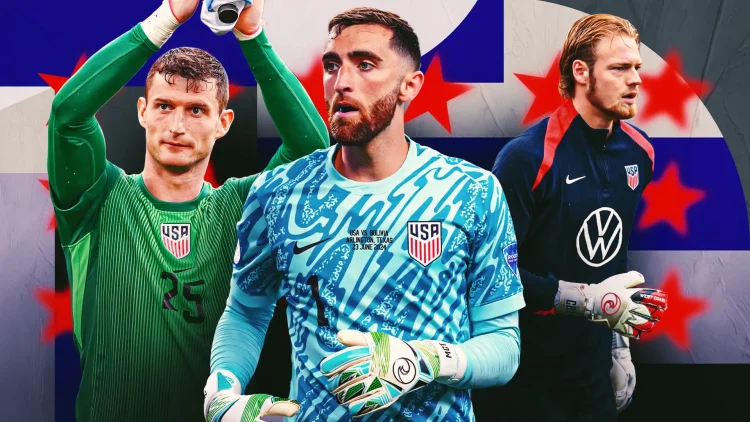Global TV Rights Revenue Distributions
FIFA’s decision to schedule key matches at unconventional local times such as 2AM has generated significant controversy, but at its core lies a strategic commercial calculus focused on maximizing global television rights revenue. In the modern football ecosystem, broadcasting deals represent the lion’s share of revenue for FIFA, national associations, and clubs alike. Unlike traditional eras when ticket sales and local fan engagement dominated, today’s globalized sports economy pivots around reaching the largest possible international audience. The timing of matches is increasingly dictated by the prime viewing hours in the most lucrative television markets rather than the convenience of local spectators.
Europe, North America, and parts of Asia constitute the biggest sources of TV rights income. For instance, prime-time evening slots in European countries correspond to early morning or late-night times in host nations located in vastly different time zones. By scheduling matches during these hours, FIFA guarantees broadcasters peak viewership and higher advertising revenues. This is especially critical for marquee games featuring global superstars, which command record-breaking fees and draw massive audiences. In markets such as the United States, where soccer vies for attention with other dominant sports, securing primetime slots is a commercial necessity to build sustained interest.
Additionally, digital streaming platforms have changed the game by providing on-demand viewing, but live matches still attract the largest audiences. Scheduling games to align with global prime time maximizes simultaneous viewership, enhancing the value of broadcast rights. Sponsors and advertisers also benefit from this approach, gaining exposure to global audiences during their peak consumption windows. This complex web of economic interests ultimately drives FIFA’s scheduling policies, making 2AM local kickoffs a byproduct of football’s transformation into a multi-billion dollar global entertainment industry.
Player Performance in “Vampire Matches”
While the commercial rationale behind late-night match scheduling is clear, the impact on player performance and well-being is a growing concern. Footballers are elite athletes who rely heavily on finely tuned physiological routines involving rest, nutrition, and mental preparation. Playing at 2AM local time—commonly referred to as “vampire matches”—disrupts natural circadian rhythms and complicates recovery protocols.
Scientific research in sports medicine consistently shows that circadian misalignment can impair cognitive function, reaction times, and physical performance. Athletes forced to adjust to irregular match timings often experience reduced alertness and increased fatigue. Coaches and support staff must devise unconventional schedules, including strategic naps and altered meal timing, to compensate. Despite these efforts, many players report difficulties maintaining peak focus and stamina in such conditions, increasing the risk of errors and injuries.
The mental strain is also significant. Late-night matches affect concentration and motivation, and disrupt players’ social and family lives, contributing to stress and burnout. Younger players, in particular, may struggle with these adjustments. Some teams have started incorporating advanced sports science methods—such as light therapy and personalized sleep programs—to help players adapt. However, the broader question remains whether such scheduling compromises the quality and fairness of competition. Matches played under suboptimal physiological conditions risk diluting the spectacle and potentially influencing outcomes.

Fan Protest Movements Gaining Traction
The dissatisfaction with 2AM kickoffs extends beyond players to fans, who form the lifeblood of football culture. Fans attending matches in person face practical challenges—late start times mean fewer spectators, subdued stadium atmospheres, and increased safety concerns with late-night travel. The essence of live football, the electric crowd energy, is diminished when core supporters cannot attend due to inconvenient timing.
Globally, fan groups have mobilized to express their discontent. Social media campaigns with hashtags like #BringFootballHome and #FairKickoffTimes have gained momentum, rallying fans from multiple countries. Petitions demanding scheduling reconsiderations have been signed by hundreds of thousands, and some supporters’ organizations have staged peaceful protests at stadiums and public venues. The key argument is that football should not sacrifice local fan experience for distant television viewers.
Some national football federations and broadcasters have begun engaging with FIFA to explore compromises. Proposals include staggered match times to better accommodate local fans without losing global audiences, and improved fan transportation and security measures for late games. The debate also shines a light on football’s broader cultural identity and its relationship with the communities that sustain it. Fans demand a seat at the table in scheduling decisions to ensure football remains a shared global yet local experience.
The Complex Trade-offs in Modern Football Scheduling
The 2AM match phenomenon encapsulates the tensions at the heart of modern football’s globalization. On one side is the undeniable commercial imperative: billions of dollars flow through broadcast rights, sponsorships, and digital platforms that fuel the sport’s growth. On the other is the fundamental human element—players’ health and performance, and fans’ passionate involvement. Balancing these competing priorities is no simple task.
Innovative solutions are emerging. Some suggest rotating kickoffs to share inconvenience among markets. Others advocate for enhanced player recovery technology and altered training methodologies to cope with odd schedules. Digital platforms enable partial offsets by offering flexible viewing options, though they cannot fully replicate live experience. Increasingly, the debate centers on governance: who sets the rules, and how are player and fan voices integrated into decision-making?
FIFA stands at a crossroads. The financial benefits of global prime-time matches are clear, but ignoring the negative impacts risks eroding football’s soul and long-term fan loyalty. The persistence of fan protests and player concerns suggests this issue will remain contentious. How FIFA navigates this balancing act will shape the future of the sport’s global appeal and cultural resonance.
Conclusion
Scheduling key matches at 2AM local time is a symptom of football’s evolution into a global entertainment juggernaut driven by broadcast economics. While this strategy significantly boosts revenue by capturing prime-time audiences in lucrative markets, it challenges players’ physiological limits and disrupts fan engagement. The rise of “vampire matches” has sparked growing protests from supporters demanding respect for the game’s local roots and a better balance between commercial interests and sporting integrity. Addressing this dilemma will require collaborative solutions involving FIFA, broadcasters, players, and fans to ensure that football remains both a global spectacle and a beloved local passion. As the sport continues to globalize, maintaining this delicate equilibrium will be key to preserving football’s unique cultural power in the decades to come.






























Discussion about this post